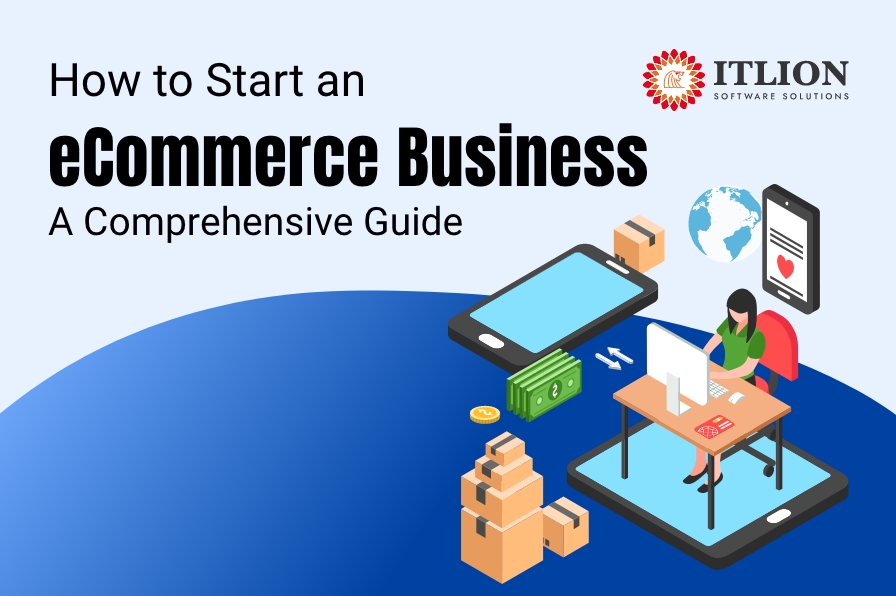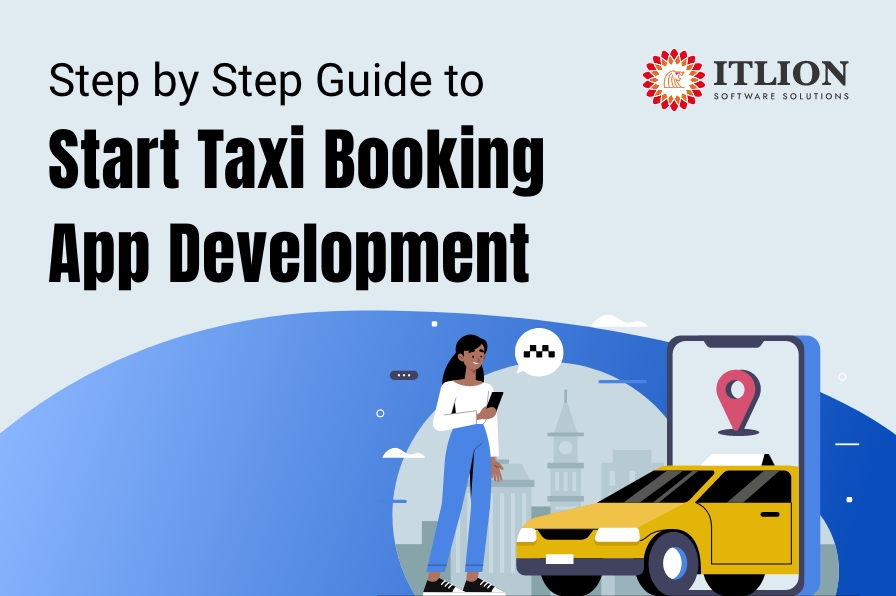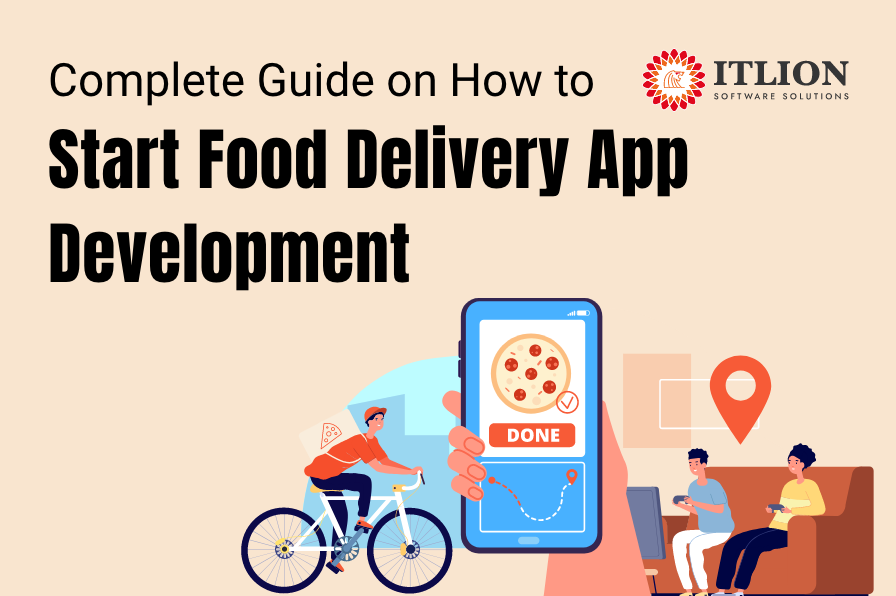According to Forbes, the growth of the eCommerce market is expected to grow by 10.4% by the end of 2023. Additionally, the holiday season will also have a large role to play. The ease of ordering things from the comfort of our homes has helped eCommerce businesses to flourish. Many eCommerce companies have had the advantage of people’s purchasing power and have made millions of money over a decade.
Additionally, in today's digital age, starting an eCommerce business has become an appealing and profitable venture. With the increasing preference for online shopping, the eCommerce industry presents numerous opportunities for aspiring entrepreneurs. Thanks to the dot.com bubble we all have been purchasing things for our loved ones over the internet.
This comprehensive guide will walk you through the steps to start a successful eCommerce business, whether you're planning to starting an eCommerce website or an online store. Let’s start with understanding why you should start an eCommerce business in the current market.
Table of Content
- Why Start an eCommerce Business?
- How to Start eCommerce Business
- Marketing Tactics
- Cost of Starting an eCommerce Business
- Challenges and Pitfalls
- Conclusion
Why Start an eCommerce Business?
There are several compelling reasons to start an eCommerce business
How to Start an eCommerce Business

Let’s quickly jump into steps to starting an eCommerce business and discuss it in more detail.
Define your Market Niche and your Target Audience
There are plenty of business ideas which we get in everyday life, but you will need to define which one of those is viable and is the need of your market. When you want to start ecommerce business, start with writing down all the ideas you have for your eCommerce market and then carry out market research to understand the market gaps and your users’ requirements. This research will also help you to define your unique selling point and provide a clear understanding of how you can make your business work.
Define your Business Model
Once you have clarity on your market needs and how your eCommerce business will help them your next job is to define the business model. Do you plan to have B2B (business to business) or B2C (business to customer). Having clarity on this will help you to define the type of products you will sell. Moreover, having clarity on this also helps you to define ways you are likely to monetize your business and generate revenue.
Define the Scope of your Product
Having clarity on your market niche and business model, your next step is to define the scope of your product for your mvp. Ask yourself questions like:
- What would you like to sell online? Is it clothes, toys, stickers, etc.
- How to plan to make those things?
- Will these things include production costs or are you planning to sell reusable products?
Answering these questions and having clarity on starting an ecommerce store will help you to define your scope of work. It is essential to have clarity on this step as it will work as a backbone for your overall business.
Define your Shipping Strategy
Shipping your products with security, safety, and in good quality is an essential part of running your eCommerce store. In order to do so, you need to come up with the shipping strategy which you think will work for your company. There are multiple ways to ship your products, some of them are:
Your shipping strategy is the secret sauce when you are wondering how to start a successful eCommerce business. You can either use all of the above mentioned methods or some of them. Once you have picked your method, your next step is to define the logistics. If you plan to use an eCommerce website builder, check if it offers shipping label printing or your customers’ will have to bear the cost. You will also have to define how much it will cost you to ship your products and based on this you need to calculate your complete costs of running a company along with the profits.
Web-First or Mobile-First Approach
After having complete clarity on all the business side of your eCommerce company, your next step is to define how you plan to sell the products.
Do you plan to have a website or an application to reach your customers?
According to our knowledge, we often tell our customers to first have a website which helps them to reach a wide target audience. Moreover, having a website will also help you leverage the power of search engines for marketing. More on this later!
Design your eCommerce Store

Coming up next is to design your eCommerce store where your users can go and products. When designing a website for a global audience you need to have a strong team of designers which will help you to design an inclusive product which caters to every users’ needs. Design plays an essential role to help gain news users, market your product, and also to retain your users. So, invest quite a good amount of time and resources in it.
Develop your eCommerce Store
Once you have finalized the first sprint of your design, your next step is to work on eCommerce development of your website. You can either invest in in-house developing or outsource your development work. Oftentimes, we recommend our customers to outsource the development portion to eCommerce development company like ours. Relying on IT partners can help you to stay ahead in the technical aspects of your store.
With over a decade of experience our professional developers and designers can help you build a website with the latest technology. We have helped many startup companies to build, and provided guidance on starting an ecommerce store along with marketing.
Testing
Once you have developed your website, the testing of it goes in parallel. It is important to test your products properly and make it bug-free so that users can use it efficiently. Testing your website is also helpful as it defines your company’s brand value and we don’t want users to have any issues with the website while they are purchasing online. Because in many scenarios, users are very likely to abandon the website if they find even a slight difficulty while browsing or purchasing online.
Marketing Tactics

Another secret on how to start a successful eCommerce business lies in the marketing tactics you will use. Let’s explore some of them:
Branding
For starting an eCommerce website, inbound sales will play a vital role to help gain customers and have your own community. Below are some of the tactics I have mentioned which can help you with in-bound sales:
In-bound Sales
For starting an eCommerce website, inbound sales will play a vital role to help gain customers and have your own community. Below are some of the tactics I have mentioned which can help you with in-bound sales:
SEO marketing helps you a lot in marketing your website on various search engine platforms. You can run various types of marketing tactics on it like pay-per click, various ad campaigns, and more. This marketing tactic provides results slowly, but has a huge scope once you have got a hang of it. Moreover, it can also help you rank in top 10 search results on multiple search engines, making your users click more often on it.
Content marketing also ties up along with SEO marketing tactics. You can have a team of content marketers who can help you market your products using the power of words. Various techniques like bloggings, seo articles, etc., will play a huge role in helping you rank your website.
In today's digital era, social media marketing is a very essential thing to reach the correct target audience. Leverage the power of various social media platforms and create your loyal customer base. Depending on the demographics and using the marketing tools of these platforms you can run various ad campaigns which can help increase your reach.
If you are still confused and don’t know how to start marketing your eCommerce store, reach out to us. Our team of experienced marketers will help you with building your online presence and utilize the latest methods of marketing your store.
Build and maintain an email list to send newsletters, product recommendations, and exclusive offers to your subscribers. This will help you to retain customers and also gain new ones. In these newsletter, you can also focus on providing a certain amount of discounts to your new or returning users.
Next up, is the most important part i.e cost to start your own eCommerce business and things you should consider. Let’s talk a bit about it:
Cost of Starting an eCommerce Business

eCommerce Website
The cost of this differs depending on whether you plan to carry out in-house development or outsource it. All the company’s have variety of cost plan so it is always better to talk with their sales team
Payment Processing Fees
Remember, the company which provides you with online payment processing will charge a certain amount on each transaction. Roughly around 3% so you’ll have to consider this too.
Inventory Management
Inventory management is a huge part of any eCommerce company and this will hugely also depend on your business model. If you plan to have inventory stocking in your business model, you will have to consider the upfront cost of purchasing it.
Warehousing
Again if you have an inventory, you will have to rent out a place wherein you can store your inventory. Consider the renting or purchasing pay of this place in your business model too.
General Cost of Running Business
This can include the monthly or annual fees for the resources, business insurance, and miscellaneous costs. Hence, remember to take into consideration all the costs while you are setting up your eCommerce store.
Challenges and Pitfalls
Let’s also talk about some challenges you are likely to face in your eCommerce journey.
Competition
As we already discussed, competition is quite a lot in the eCommerce space, but that should not stop you from having your eCommerce platform. Instead, use this competition to your advantage by learning about their strengths, weaknesses, and in turn what you can use as your USP. This information will help you a lot to provide quality service to your customers.
Logistics and Operations’ Complexity
Managing inventory, order fulfillment, and shipping efficiently can be a complex task especially as your business grows. To keep up with the growing demand you can tie up with various shipping and logistics companies which can help you to deliver products safely and securely to your customers.
Conclusion
Starting an eCommerce business is an exciting journey with the potential for significant rewards. By following the steps outlined in this guide and staying attuned to the ever-evolving e-commerce landscape, you can build a successful online business. Remember that continuous innovation, excellent customer service, and strategic marketing are key to your eCommerce business's long-term growth and sustainability.
Reach out to our strong team of experienced professionals who can help you to stay ahead of the game compared to your competitors. Having an eCommerce development company like ours can help you a lot as you start on with your journey.


 2563
2563










